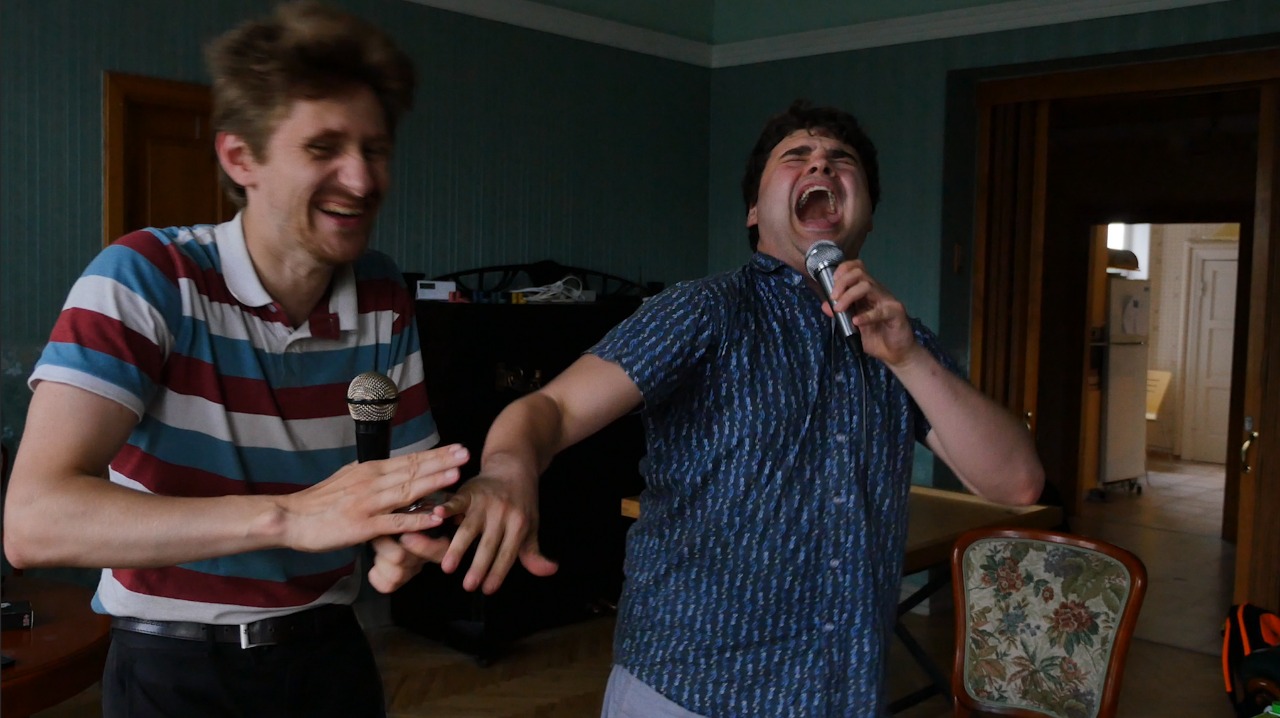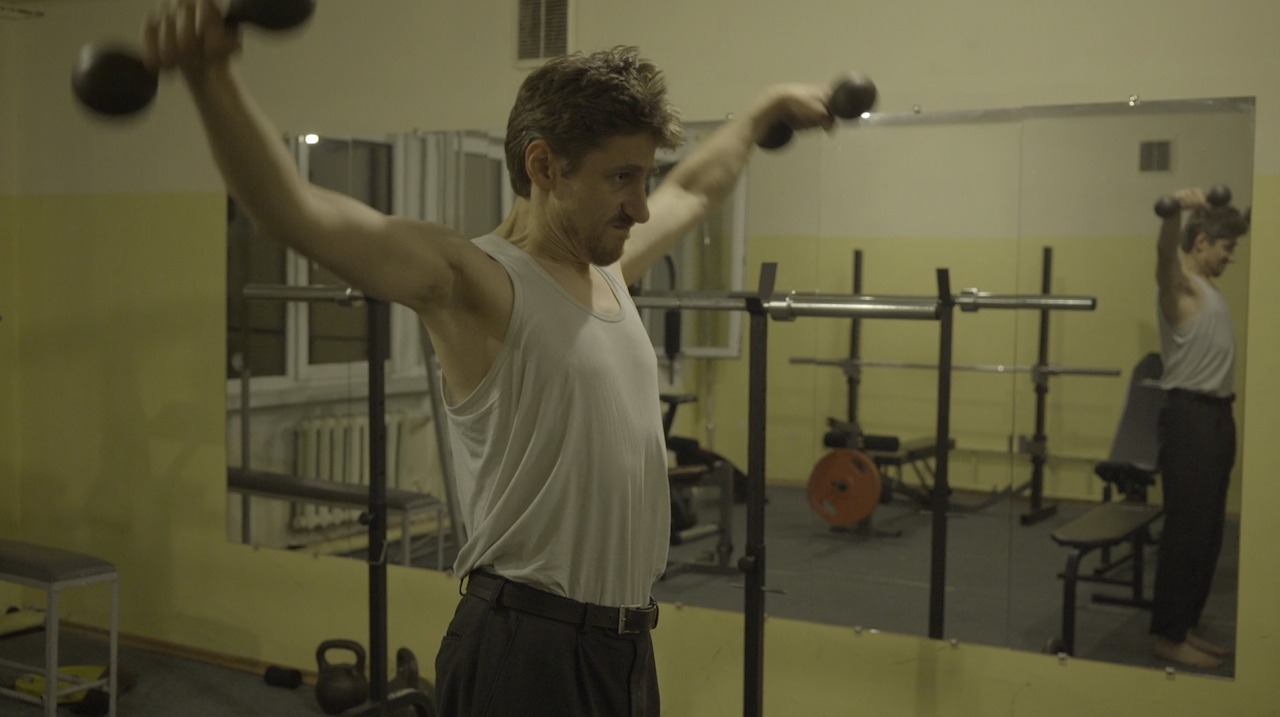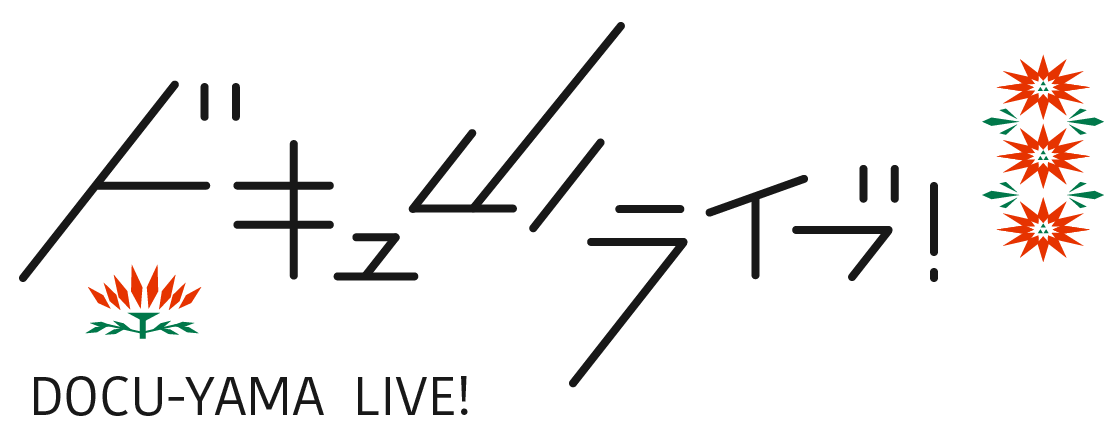山形国際ドキュメンタリー映画祭で行われている「ヤマガタ映画批評ワークショップ」。映画祭というライブな環境に身を置きながら、ドキュメンタリーという切り口から、映画について思考し、執筆し、読むことを奨励するプログラムとして好評を博してきました。今回、この批評ワークショップがインドネシアのジョグジャカルタで開催されました。「ヤマガタ映画批評ワークショップ in ジョグジャカルタ」より、Epoy Deytoさんによる批評をご紹介します。英文のままの掲載となること、ご了承ください。
Solving My Mother: The Documentary as Satire
Epoy Deyto (Philippines)

Ieva Ozolina’s documentary Solving My Mother focuses on a family of local academics in Latvia whose members are equally renowned within their own fields. Raitis, the eldest sibling in the family, fresh from his thesis defense with the highest recognition, bears with him years of conflict with his mother, Silvija, which he’s now trying to resolve. This conflict is complicated as it is rooted in several factors concerning Raitis’s personal development. The film’s treatment of this conflict, however, seems to make light of the situation.
As a subject, Raitis’s mere presence in front of the camera is already interesting. The filmmaker does not need to frame him from a specific angle to see his personality. His personality overflows from his stutters and from the anxious gestures of his hands and upper body, which suggest a kind of internal malaise. The irregularities in Raitis’s observable behavior give clues towards what is being explored in the film. Throughout the runtime, Raitis claims that these behavioral irregularities are traumatic effects of his mother’s verbal abuse.
The first instance when Raitis makes this claim is followed by a sequence where Silvija is being interviewed. She warmly recalls Raitis as an adorable child. The shift of focus from Raitis to Silvija raises questions about the nature of their relationship as mother and son and casts suspicion on Raitis’s claims.
Having planted this suspicion, the film unfolds with a hint of distrust toward the main subject, in a tragicomic way. Though considered a genius, Raitis is often seen as unreliable. At the billiard bar, he can’t even be relied on by his friend Boriss to help him hide from the latter’s fiancé as Boriss flirts with other girls. There’s also one memorable scene in the corridor of the tenement where Raitis lives, where he’s trying to avoid the feng shui expert brought by his hypnotist to rearrange his home for him. Raitis, finding too many excuses, makes his hypnotist mad and causes him to walk out.
The way that the film delivers its comedy in the sequences mentioned above seems too familiar, as if the film’s aesthetic treatment had taken inspiration from MTV-produced reality shows, complete with handheld shots, multiple cameras, fluid editing, and people reacting in the kind of “natural” manner which could easily be mistaken for performance. Solving My Mother functions successfully not in its expository character as a documentary, but in its tendency to be satirical. It is a satire of Raitis’s claims. As the film throws shade on Raitis’s claims of being abused, it also captures the contradictions in his personality between this highly rational man of science and this overaged kid with an overcharged oedipal angst. On the hypnotist’s couch, Raitis talks about his mother and how he thinks she has affected his life negatively. His storytelling is interrupted in the middle of his talking as the film abruptly cuts to a sequence wherein the hypnotist seems to be casting a spell on Raitis to make him fall asleep. The film’s comedic character relies on these absurdities which it would be weird to laugh at, even though the situations are highly ridiculous.
As the film sways between exposition and comedy, so its ethical boundaries seem to sway into dangerous zones. While capturing intimate and tense moments, the presence of the camera seems to intensify the tension further, triggering happenings as it rolls. In the scene wherein Raitis and his mother visit the house of his grandfather, the camera does not seem to be a passive entity. It’s as if it were working with Raitis towards an eventual explosion of tension in the family’s supposedly peaceful Easter lunch. In their confrontation, Silvija questions why she only hears of his complaints now. Though Raitis may be justified in his grievances (he says that his mother did not seem to be interested whenever he reached out before), the film makes his exposition seem contrived, as if Raitis, his voice cinematically stuttering, were behaving this way because he’s in front of a camera.
The more Raitis projects himself, the more unreliable he appears, and the less seriously the film seems to take his conflicts. Even when actual violence occurs, its aftermath only shifts the satire into a dark comedy of errors. Because of this satirical aspect, the film walks an ethical tightrope. The uncomfortable concluding section makes the film’s method still more questionable. In the face of an obviously manipulative person, knowledgeable of his capability for abuse, the camera remains distant. As if waiting for another hilariously awkward moment to happen.

![ドキュ山ライブ! [DOCU-YAMA LIVE!]](http://www.yidff-live.info/wp-content/themes/yidff-live_2017/images/header_sp_logo1.png)

